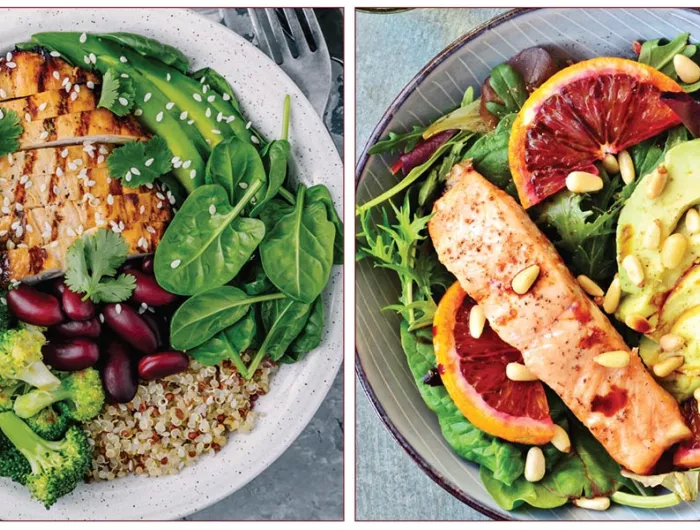To lose weight, should you cut carbs, fat, or protein?

When you’re trying to lose weight, what matters more: cutting fat, cutting protein, or cutting carbs?
Pounds Lost—which began in 2004—wasn’t the first or the last study to explore that question. But it was one of the largest.
“We enrolled over 800 people so we could compare the effect of diets higher or lower in carbohydrate, fat, or protein,” says Frank Sacks, professor of cardiovascular disease prevention at the Harvard T.H. Chan School of Public Health.
Pounds Lost was one of the longest diet trials
“We did a two-year study, which was quite unusual at the time, because body weight reaches a low point after about six months in a weight-loss program and then you have weight regain,” says Sacks.
Participants got daily meal plans and went to individual and group sessions where they learned what to eat. Each of the diets cut about 750 calories a day.
“We came up with a very simple but somewhat unexpected result,” says Sacks.
“The composition of fat, carbohydrate, and protein in a healthy diet had no effect whatsoever on weight loss or regain.” Nor did it affect hunger.
Most other studies—they typically tested low-carb versus low-fat diets—have had similar results.
The most recent low-carb vs. low-fat study
DIETFITS randomly assigned 609 people to cut as much fat or carbs as possible from their diets, rather than count calories.
After one year, each group had lost roughly the same weight—about 12 pounds. And that’s no surprise, since both groups ended up cutting a similar number of calories—about 500 to 600 a day, on average.
“We expected people with insulin resistance to do better on a low-carb diet, but they didn’t,” says lead investigator Christopher Gardner, professor of medicine at the Stanford University School of Medicine. (People with insulin resistance have an increased risk of diabetes.)
Maybe that’s because both diets were healthy.
“Nobody was supposed to eat added sugars or refined grains, and everybody was supposed to eat vegetables,” says Gardner. “Americans get a quarter of their calories from added sugars and refined grains and a woefully low number of calories from vegetables...if you don’t count potatoes. If we could just get people to make those changes, we’d be well on our way.”
Photo: stock.adobe.com/nblxer (left), topotishika (right).
The Latest by Bonnie
A snapshot of the latest research on diet, exercise, and more
Weight and Health

A snapshot of the latest research on diet, exercise, and more
Preventing Disease

Prediabetes: What may—and may not—help reverse it?
Weight and Health

The good fats
Healthy Eating

Pop Quiz!
Preventing Disease

Want to protect your heart, eat more fruits and veggies, and cut unhealthy carbs?
More on weight & health
A snapshot of the latest research on diet, exercise, and more
Weight and Health

A snapshot of the latest research on diet, exercise, and more
Preventing Disease

Prediabetes: What may—and may not—help reverse it?
Weight and Health

FDA update: These supplements contain toxic yellow oleander
Supplements

What you need to know about sleep apnea
Weight and Health


